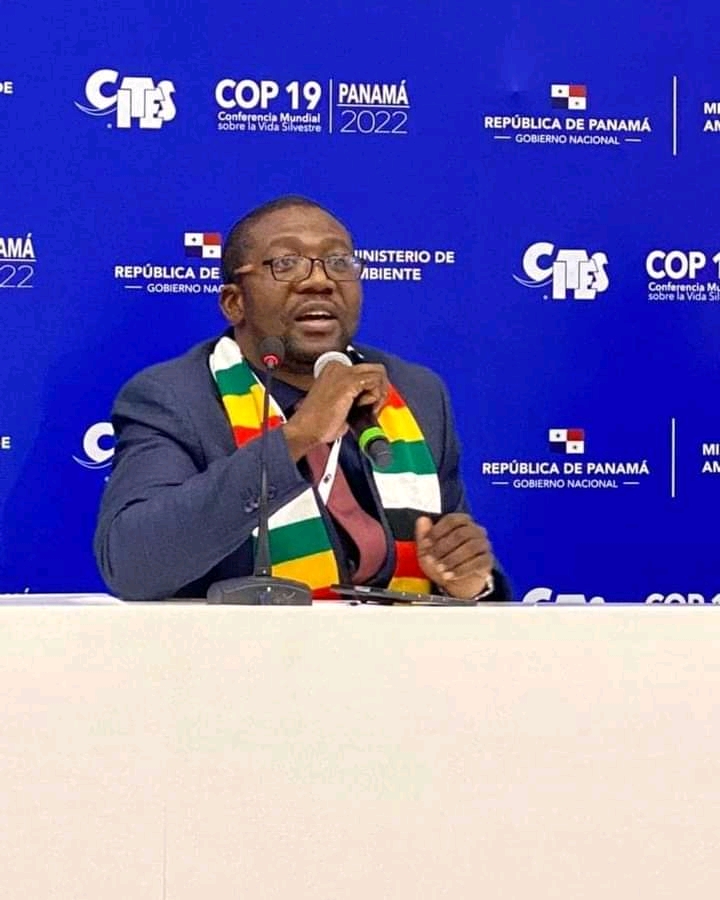Minister Nqobizitha Mangaliso Ndlovu
By Dickson Bandera
After the discovery of the damage to the Ozone layer in the 80s, commitment by governments to repair the damage was demonstrated by the speed at which countries subscribed to the Montreal Protocol on Substances that Deplete the Ozone Layer of 1989.
The Montreal Protocol sought to collaborate efforts to interject the damage to the ozone layer by banning ozone-depleting substances, including chlorofluorocarbons (CFCs).
On 22 December 1994 the United Nations General Assembly, through resolution 49/114, proclaimed the World Ozone Layer Day and invited all Parties to commemorate the day every year.
By 2008, the Montreal Protocol had become the first and only UN environmental agreement to be ratified by every country in the world.
The 2022 Scientific Assessment Panel Report confirmed that efforts are paying off as the ozone levels are expected to return to 1980 levels by around 2066 over the Antarctic and by around 2046 over the Artic.
Zimbabwe, which is determined to promote sustainable measures to protect the earth and life that flourish upon it, is one of the countries actively participating to environmental initiatives.
In light of this, the country joined the rest of the world in commemorating the World Ozone Layer Day on the 16th of September 2023.
The commemorations for this year were held under the theme “Montreal Protocol: fixing the ozone layer and reducing climate change”.
In a statement to mark the day, Minister of Environment Climate and Wildlife, Hon Mangaliso Ndlovu outlined some of the activities that the government is undertaking.
“The Government of Zimbabwe ratified the Kigali Amendment on the 18th October 2022 and is implementing activities to phase down the use of HFCs in all sectors. In line with this development, my Ministry reviewed the old regulations and promulgated new regulations to control the use of Hydrofluorocarbons in addition to Ozone Depleting Substances. The revised regulations were promulgated through SI 49 of 2023 on the 11th April 2023,” said the minister.
Minister Ndlovu also said the ministry has adopted the interagency approach to ensure effectiveness of the measures put in place.
“The Ministry works closely with Customs Officers and Environmental Officers at major ports of entry and stations across the country to enforce the provisions of these regulations. Whilst the regulations control the import and use of substances that deplete the ozone layer and cause global warming, they facilitate local industries to operate in a sustainable manner,” he said.
Added the Minister: “The regulations enable the local industry to be competitive whilst meeting international standards by adopting climate friendly alternatives that are now readily available.
The realization of the environmental goals also calls for the public efforts to adopt natural solutions, says the minister.
“While regulating at manufacturing stage is vital, there is need for the public to “self-regulate” by opting for natural solutions to food preservation that require cold chain supply systems.
Such approaches mean reverting and promoting natural food preservation and storage, greater accessibility to fresh food and reducing cold food storage that require refrigeration.
We are though pleased that our trajectory of addressing HCFCs and HFCs are already baselined on low refrigeration density per capital compared to other countries,” he said.
The Montreal Protocol has protected millions of people from skin cancer and eye cataracts, safeguarding ecosystems and slowing down climate change.
Many of these ozone-depleting substances are also greenhouse gases that contribute to global warming and climate change.


